
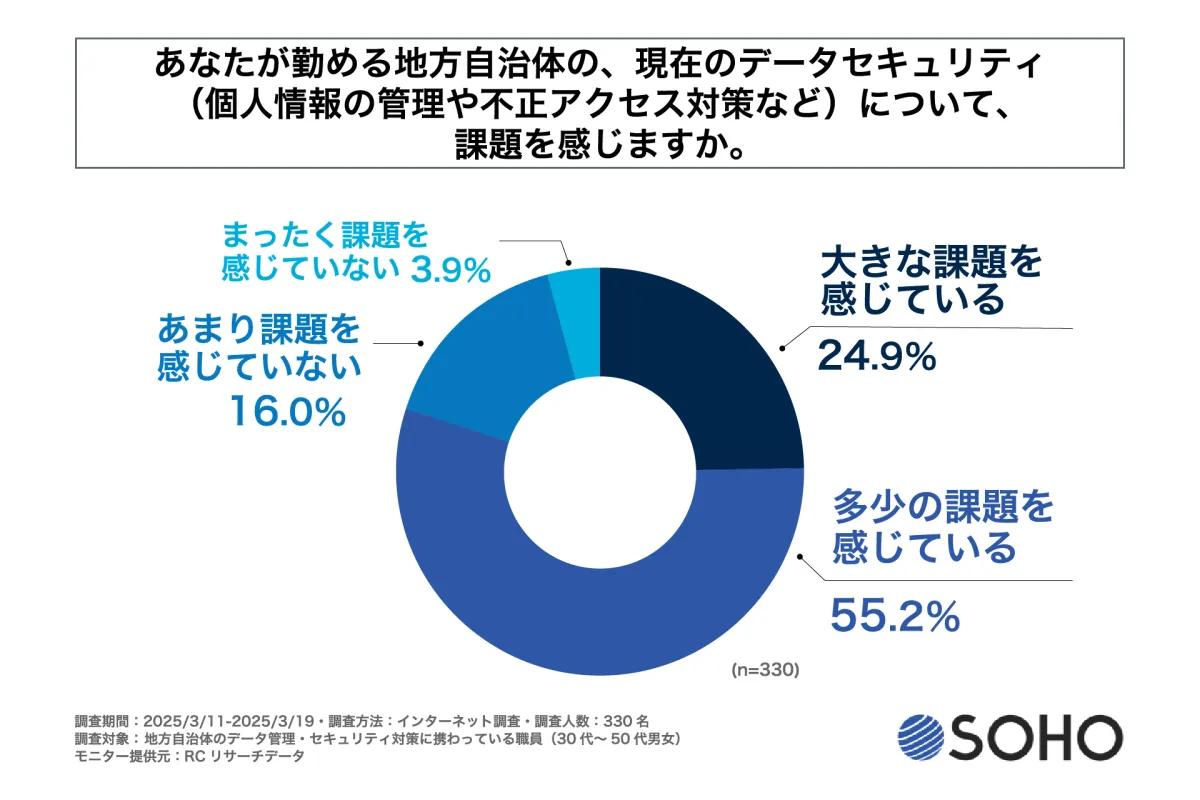
Over 80% of Local Government Employees Express Data Security Concerns
Over 80% of Local Government Employees Express Data Security Concerns
Recent research conducted by Soho Corporation shows a troubling trend among local government employees involved in data management and security. The study reveals that a staggering majority—over 80%—feel that their workplaces lack adequate data security measures. This comes against the backdrop of an increasing emphasis on data management and cybersecurity following notorious incidents like the 2019 Kanagawa HDD misappropriation case, where sensitive personal information was inadequately handled and leaked.
Background of the Survey
In response to such significant breaches, guidelines were revised in December 2020, mandating stronger protocols for the appropriate erasure of data. As we reach nearly four years since these changes, the pressing question remains: have local government data management frameworks truly evolved to meet these new demands?
Soho Corporation, based in Chiyoda, Tokyo, conducted an investigation to assess current practices and attitudes among employees responsible for data management and security in local municipalities. The results revealed a range of concerns and areas of ignorance regarding compliance with updated guidelines and data handling practices.
Key Findings of the Survey
1. Awareness Gap: More than 40% of employees reported being unaware of the December 2020 updates to the information security policy guidelines. Only 56.1% acknowledged that they knew about the changes, while a significant portion (29.7%) were aware of a revision but not its specifics.
2. Misunderstanding Data Recovery: Alarmingly, over 20% of respondents did not realize that merely formatting HDDs or SSDs does not prevent the easy recovery of data. This fundamental misunderstanding puts data at risk of unauthorized retrieval.
3. Compliance with Erosion Rules: The survey highlighted that roughly 50% of municipalities have clear rules on personal data erasure, and all employees adhere to these protocols. Conversely, in many municipalities, such rules exist but are not uniformly followed or clarified.
4. Most Common Erasure Methods: The preferred methods utilized for the erasure of personal data included outsourcing to external vendors (24.6%), using physical destruction devices (23.6%), and manual erasure through PCs (23.0%).
5. Widespread Concerns About Current Security Measures: A striking 80% of employees expressed that they perceive significant problems with their current data security practices, underscoring a critical lack of confidence in their workplaces' ability to protect sensitive information.
6. Current Security Enhancement Strategies: Local governments are reportedly focusing on enhancing employee training on data security and implementing physical destruction of outdated data storage devices as primary strategies for improvement.
Conclusion
The survey data paints a clear picture—while certain municipalities are making strides in their data management and security approaches, a concerning percentage of employees remain uninformed about critical guidelines and risk management strategies. With many individuals indicating a clear need for enhanced training and better-defined protocols, the path forward is evident. As the challenges continue to mount, reliance on outdated erasure practices and ignorance of updated protocols are no longer viable options.
For local governments looking to bridge these gaps, Soho Corporation offers services such as the HDD/SSD Physical Destruction and Data Erasure rental service, designed to facilitate safe and efficient data handling. By providing access to optimal physical destruction devices based on types and volumes of record media, local governments can achieve the highest levels of data security and compliance.
For more information on how to boost your data security measures, visit Soho Corporation's rental services.
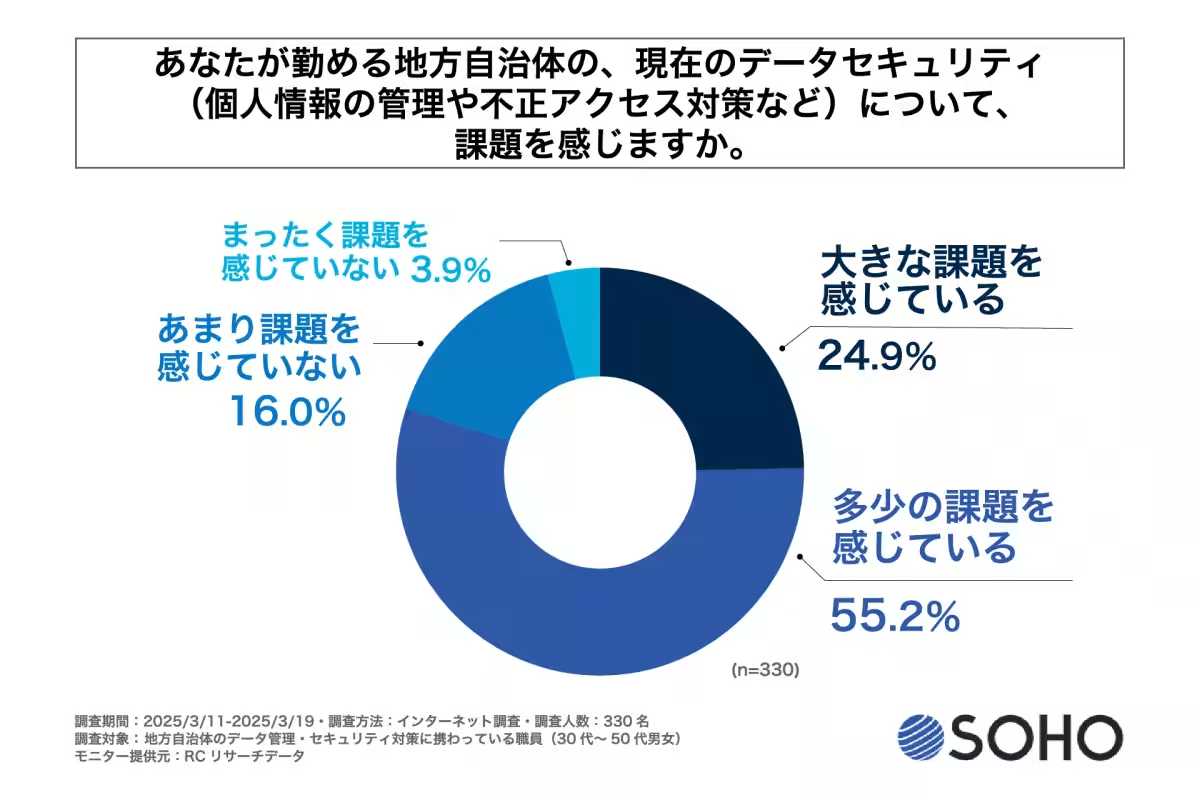

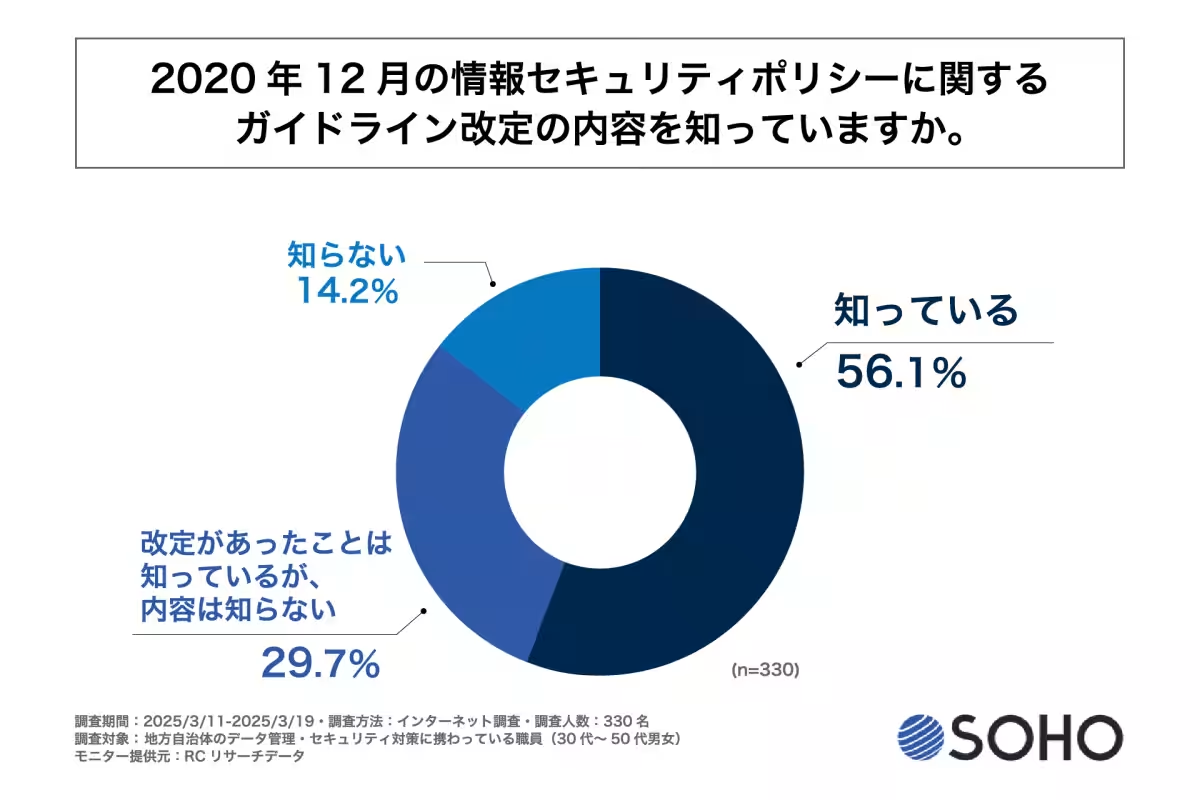
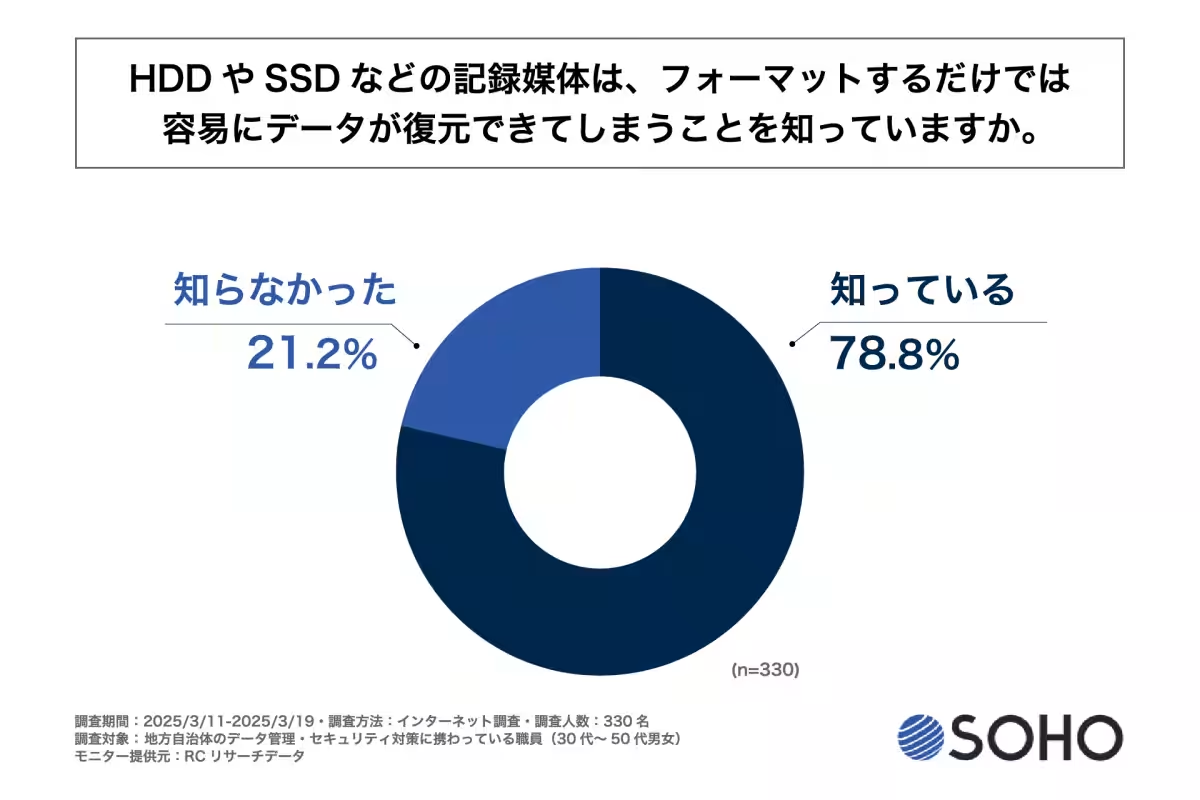
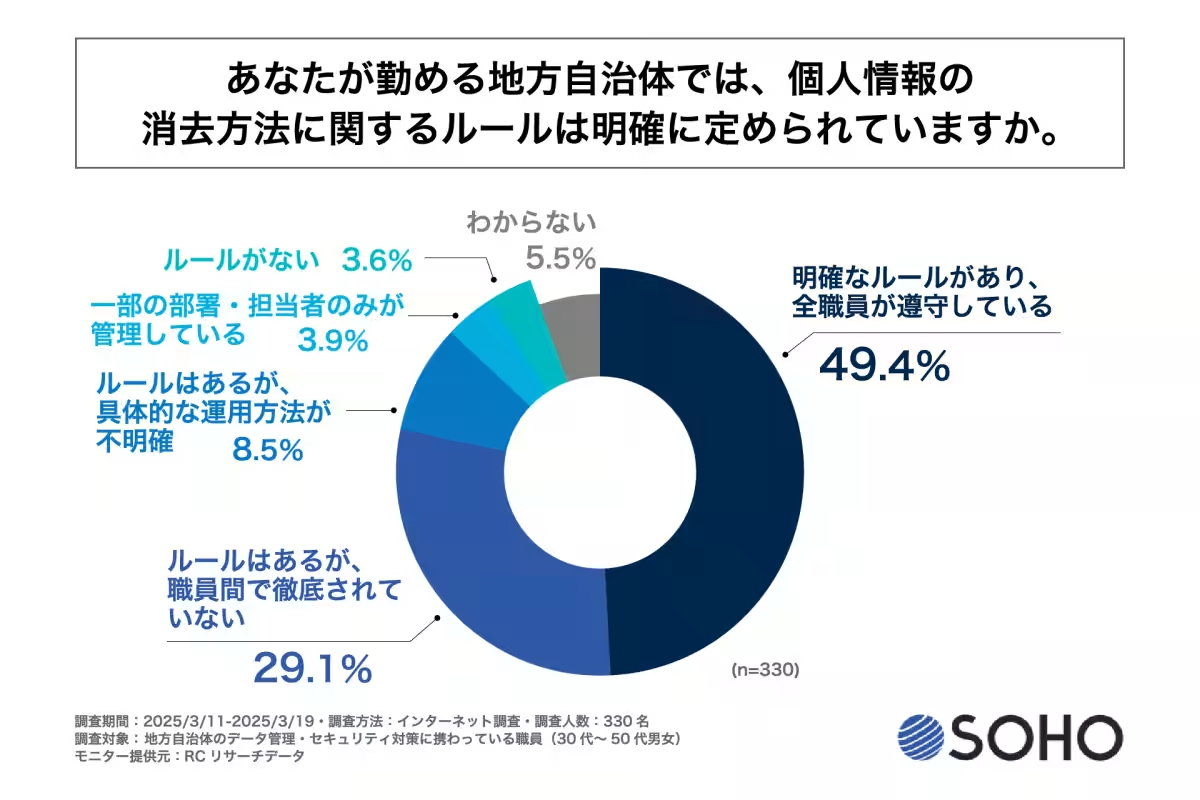
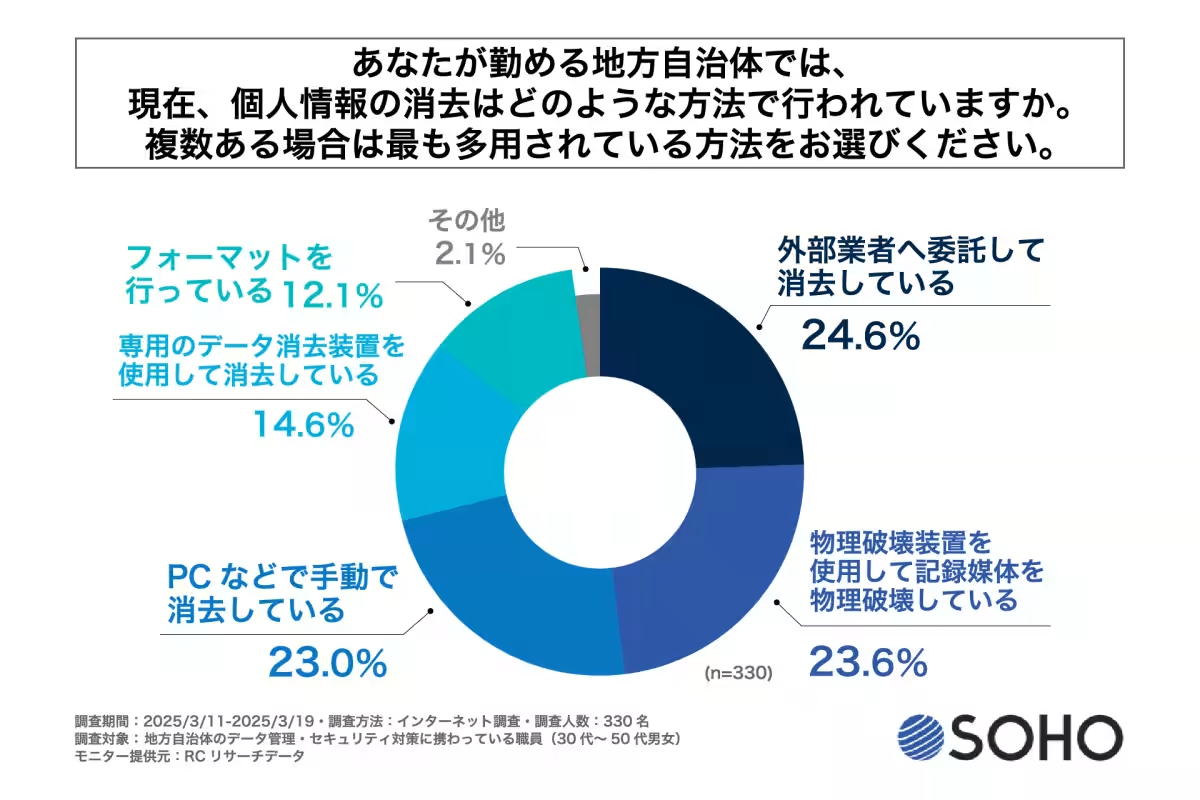
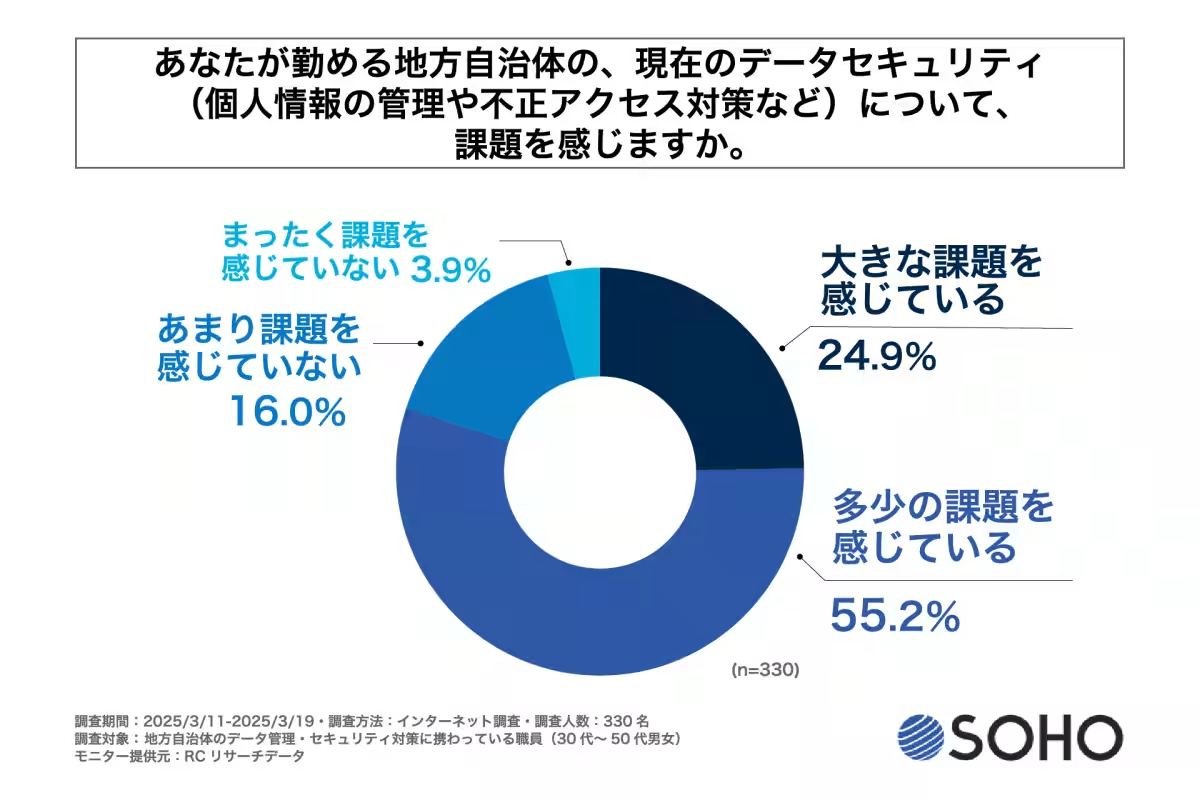
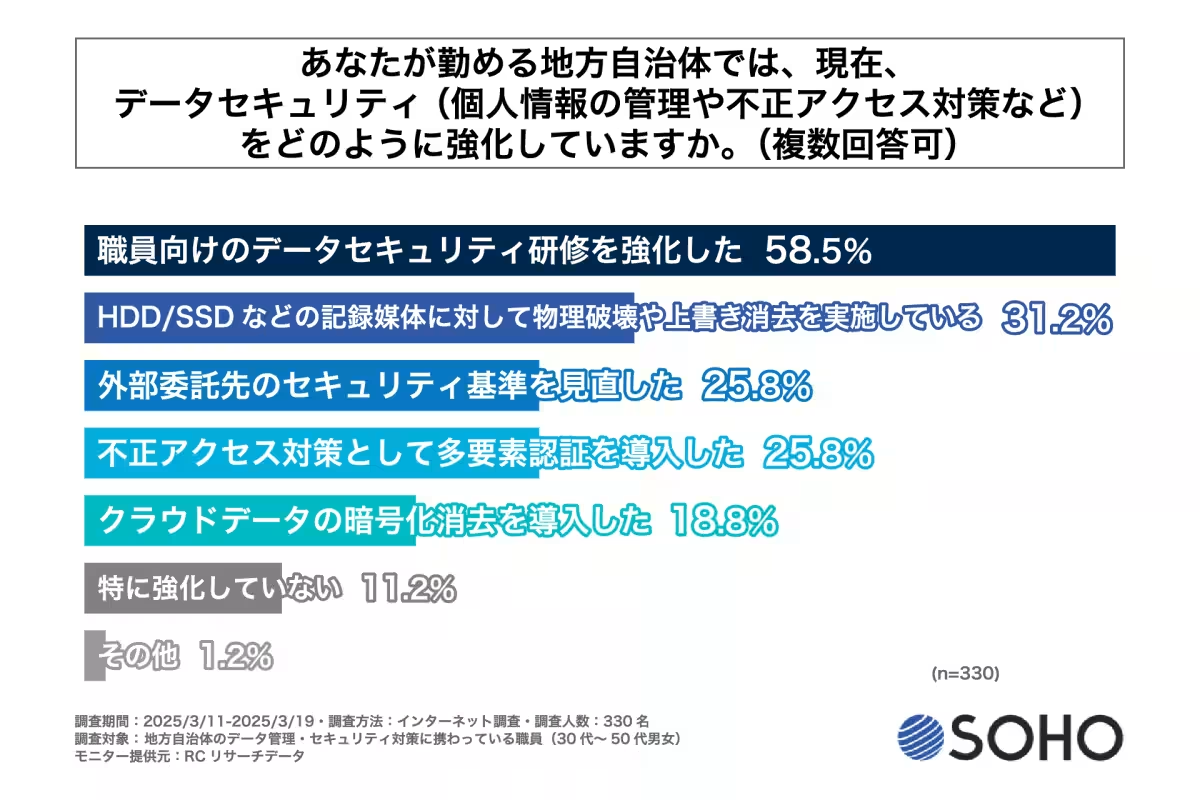
Topics Policy & Public Interest)










【About Using Articles】
You can freely use the title and article content by linking to the page where the article is posted.
※ Images cannot be used.
【About Links】
Links are free to use.